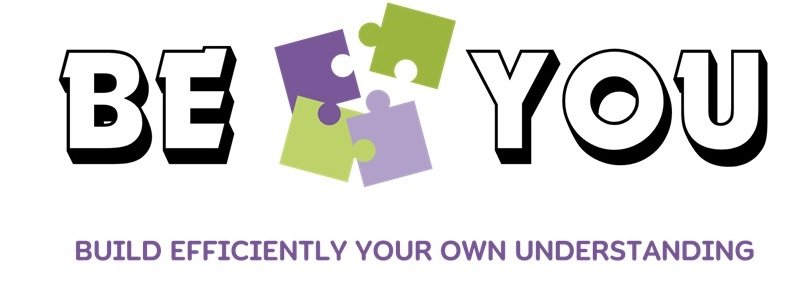Master the art of collaboration and teamwork with our engaging self-learning modules, designed to equip you with essential 21st-century skills. Learn how teamwork skills can boost your career, where to develop them, and how collaboration truly works. Explore group development models like Tuckman, Lencioni, GRPI, and DISC, assess your own teamwork skills, and discover the leader’s role in guiding teams. Gain tools to handle bullying, resolve conflicts, and create a positive team dynamic.


Project “Build efficiently your own understanding! ( BE YOU)” is co-funded by the Erasmus+ programme. The project number: 2023-2-RO01-KA220-YOU-000183045
IMPORTANCE OF TEAMWORK
Based on the SALTO Competence Model, this self-study focuses on key teamwrok components such as communication, conflict resolution, cooperation, shared responsibility, and adaptability.
ARE YOU A GOOD TEAMPLAYER
Take a moment to reflect on your experiences working in different teams, regardless of the task. Consider your actions, behaviors, and emotions during those situations. Self-evaluate how well you demonstrate teamwork competencies by recalling specific past scenarios. Self-reflection helps you identify your strengths and areas for improvement, offering insights into how you can grow as a team player.
TUCKMAN’S MODEL
Ever wonder why some teams vibe perfectly while others feel like chaos? Enter Tuckman’s Stages of Group Development – a simple way to understand how teams grow and change over time. From the awkward “getting-to-know-you” phase (Forming) to crushing it together (Performing).
LENCIONI MODEL
Think your team could be doing better? Patrick Lencioni’s “The Five Dysfunctions of a Team” is like a reality check for teamwork. Instead of telling you how to build a dream team, it shines a light on common issues that can hold your squad back—like trust issues, lack of focus, or dodging accountability.
GRPI MODEL
Ever wondered what makes a team click? Enter the GRPI model—Goals, Roles, Processes, Interactions. It’s like a team map, created by Richard Beckhard, that helps you focus on what really matters: setting clear goals, understanding who does what, streamlining workflows, and building solid relationships.
ROLE AS A LEADER
DISC MODEL
Ever wondered how your team’s personalities shape the way you work together? Meet the DISC model: Dominance, Influence, Steadiness, and Conscientiousness. It’s all about understanding the unique traits of team members to improve communication and strengthen teamwork.
CONFLICTS IN THE TEAM
Conflict is a natural part of working in teams, whether over small or significant issues. Instead of avoiding it, learning how to manage conflict is an important skill. Discover the Wheel of Conflict, a tool to help you resolve disagreements constructively and improve teamwork.
MOBBING AND BULLYING IN THE TEAM
Mobbing, or workplace bullying, involves harmful actions aimed at undermining an individual or a group, often through malicious, humiliating, or vindictive behavior. This toxic environment can severely affect morale, productivity, and mental well-being. Understanding what mobbing looks like and knowing how to address it are crucial steps in creating a supportive and respectful workplace. In this section, we’ll guide you through recognizing and dealing with workplace bullying effectively.

DICLAIMER
Funded by the European Union. Views and opinions expressed are however those of the author(s) only and do not necessarily reflect those of the European Union or the ANPCDEFP. Neither the European Union nor the ANPCDEFP can be held responsible for them.